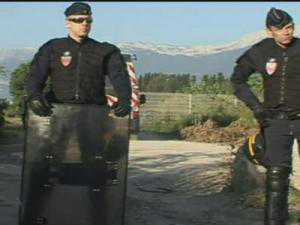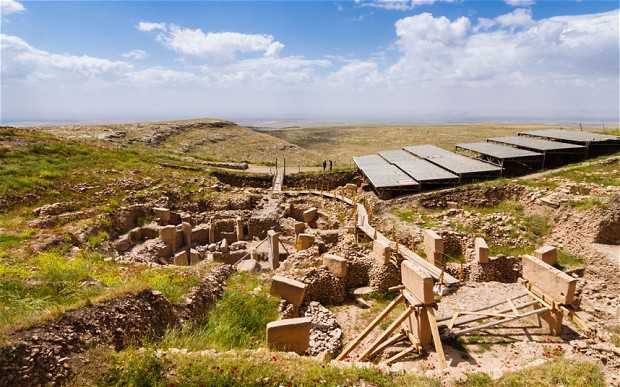Commentary by Michael R. Sesit
Aug. 1 (Bloomberg)
Beware of French presidents seeking grand projects.
Amid great fanfare, Nicolas Sarkozy last month unveiled the Mediterranean Union of 43 countries, consisting of the European Union’s 27 members, 14 non-EU member countries that border the Mediterranean Sea, as well as Jordan and Mauritania.
The ostensible goal is to improve the economic lot of Europe’s poorer neighbors, curb terrorism, stem illegal immigration, clean up the polluted Mediterranean, prevent the proliferation of chemical, biological and nuclear weapons, improve maritime and land transport and promote human rights.
The experiment — Sarkozy’s attempt to establish a legacy for his presidency — is doomed to fail, not the least because it attempts to accomplish too much, with too few resources among too disparate a group of countries. The project is also rife with hidden agendas, including the promotion of French national interests, while ignoring some of the biggest dangers in the former European colonies in the Middle East and Africa.
The founding of the Mediterranean Union three weeks ago was accompanied by grandiose language saluting human rights, praising democratic principles and condemning terrorism. “We must surmount all the hatreds to make space for a great dream of peace and civilization,” Sarkozy said. France’s real motive, though, is to establish a French southern sphere of influence to counter Germany’s dominant position in central and eastern Europe.
German Resistance
The Germans caught on quick. Not wanting to see the EU divided, nor German funds used to finance contracts awarded to French companies, Chancellor Angela Merkel objected. Sarkozy retreated and agreed to include the entire EU, instead of just the countries bordering the Mediterranean Sea. It was also agreed to frame the effort somewhat as a successor to the ill-fated Barcelona process, a 1995 plan to promote economic development and conflict resolution among Mediterranean states.
Still, even in a watered-down version, French companies are well positioned. The union’s initial projects in energy, water systems and transport all play to French industrial strengths.
Any doubts that the Mediterranean Union isn’t a venture dedicated to the greater glory of France should be dispelled by the date chosen for its launch, July 13 — the eve of Bastille Day, France’s national holiday. That way, the assembled heads of state and other senior dignitaries could be treated to a parade that a Wall Street Journal editorial once called the most ostentatious display of military might west of Moscow.
French Armory
Replete with everything from a marching unit of the French Foreign Legion — which for decades was France’s instrument of repression of its North African colonies — to armored tanks and a flyover by fighter jets spewing out the tricolor in smoky trails, the celebrations seemed to be a cross between a photo opportunity and an armaments bazaar.
At the political level, Turkey sees the union as a consolation prize for its eventual denial of EU membership. “It would send a very bad message to the world’s 1.5 billion Muslims,” Egeman Bagis, chief foreign-policy adviser to Turkish Prime Minister Recep Tayyip Erdogan, told the New York Times. Sarkozy has said that Turkey doesn’t belong in the EU.
Meanwhile, Senegalese President Abdoulaye Wade on July 17 said that Europe wants Algerian and Libyan oil-and-gas reserves and accused the EU of deliberately choosing to isolate Africa through the new union. Libyan strongman Muammar al-Qaddafi denounced the project.
Hodgepodge of States
Alain Leroy, the French diplomat who was overseeing the Mediterranean effort, said today’s EU began as the European Coal and Steel Community in 1951. The comparison is a weak one. The ECSC had only six members, all European, all true democracies. None was a theocracy, nor was any infected by terrorism.
By contrast, the Mediterranean region is a hodgepodge of European, Arab and African states consisting of democratic regimes, monarchies and dictatorships — some with a strong religious orientation — and made up of Christians, Muslims and Jews, most of whom don’t get along.
The region is mired in strife between Israel and the Arab world generally and Israel and the Palestinians specifically. Israel and Syria remain technically at war. Syria doesn’t recognize Lebanon. At odds over the Western Sahara, Algeria and Morocco have had closed borders for more than 13 years. Cyprus remains divided; the Balkans lack stability; and Turkey and Greece have disputes that date back to the successors of Alexander the Great.
Iran’s Ambitions
What’s more, the experiment ignores the majority of the African continent, and the presumed debt Europe’s one-time colonial masters owe it. Although North Africa’s former French colonies seek freer access to Europe’s food markets, France, eager to protect its farmers, opposes granting it.
By restricting itself to the countries bordering the Mediterranean Sea, the project also ignores the area’s most dangerous problem: Iran’s nuclear ambitions.
Should Sarkozy’s efforts bring peace to the Middle East, succeed in cleaning up the Mediterranean Sea, persuade the region’s populations to abandon terrorism and help boost living standards from Algiers to Amman, he and his union will have earned their place in history.
But don’t bet on it.
(Michael R. Sesit is a Bloomberg News columnist. The opinions expressed are his own.)
To contact the writer of this column: Michael R. Sesit in Paris at at [email protected]
Last Updated: July 31, 2008 20:01 EDT
Source: Bloomberg.com, Aug. 1, 2008






